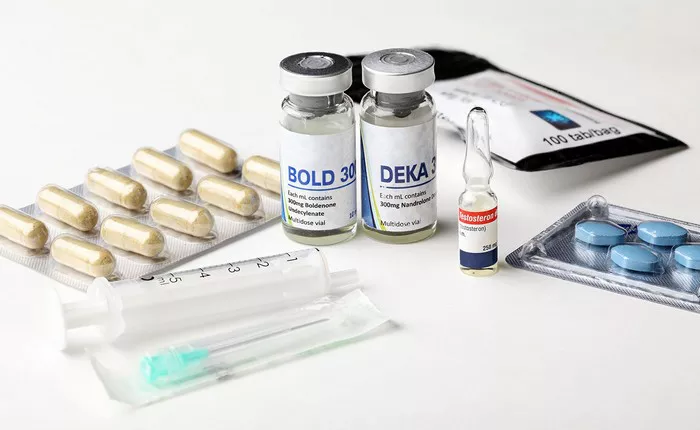In recent years, the use of anabolic steroids has become a topic of intense debate and scrutiny, especially concerning their potential impact on cardiovascular health. Among the myriad of concerns associated with steroid use, one of the most alarming is the potential link between steroids and cardiomyopathy. Cardiomyopathy refers to diseases of the heart muscle, leading to abnormalities in its structure and function. Understanding the relationship between steroids and cardiomyopathy is crucial for both healthcare professionals and the general public. This article delves into the scientific evidence and controversies surrounding this complex issue.
What are Steroids and How are They Used?
Steroids, technically known as anabolic-androgenic steroids (AAS), are synthetic derivatives of testosterone, the male sex hormone. They are commonly used to enhance athletic performance, promote muscle growth, and improve physical appearance. Steroids can be taken orally, injected, or applied topically. While they have legitimate medical uses in treating conditions such as hormonal deficiencies and certain types of anemia, their misuse and abuse in non-medical settings are a growing concern.
The Mechanism of Action and Effects of Steroids
Steroids exert their effects primarily by binding to androgen receptors in various tissues, including muscle cells. This binding activates cellular processes that lead to increased protein synthesis, muscle hypertrophy (growth), and enhanced physical performance. However, this mechanism also has a range of systemic effects, including alterations in lipid metabolism, blood pressure regulation, and inflammatory responses.
Understanding Cardiomyopathy
Cardiomyopathy encompasses a group of diseases that affect the heart muscle, leading to structural and functional abnormalities. These abnormalities can manifest as impaired heart pumping function (systolic dysfunction), stiffening of the heart muscle (diastolic dysfunction), or a combination of both. Cardiomyopathy can be classified into several types, including dilated cardiomyopathy, hypertrophic cardiomyopathy, and restrictive cardiomyopathy, each with distinct characteristics and underlying mechanisms.
The Potential Link Between Steroids and Cardiomyopathy
Research investigating the relationship between steroid use and cardiomyopathy has yielded mixed findings and remains a topic of ongoing study and debate. While some studies suggest a potential association between long-term steroid use and an increased risk of cardiomyopathy, others have not found a conclusive link. Several factors contribute to this complexity:
1. Dose and Duration: The dose and duration of steroid use play a crucial role in determining its cardiovascular effects. Higher doses and prolonged use are more likely to have adverse cardiovascular consequences.
2. Individual Variability: Not all individuals who use steroids develop cardiomyopathy, indicating that genetic, environmental, and lifestyle factors may interact with steroid use to influence cardiovascular risk.
3. Other Risk Factors: Steroid users often have other risk factors for cardiovascular disease, such as high blood pressure, dyslipidemia (abnormal lipid levels), and obesity, which can confound the association between steroids and cardiomyopathy.
4. Type of Steroids: Different types of steroids may have varying effects on the cardiovascular system. For example, some steroids have more potent androgenic (masculinizing) effects, which could influence cardiovascular risk differently than steroids with predominantly anabolic (muscle-building) effects.
Clinical Evidence and Case Studies
Several clinical studies and case reports have explored the potential association between steroid use and cardiomyopathy. These studies often involve athletes and bodybuilders who engage in long-term, high-dose steroid regimens. While some studies report an increased prevalence of cardiovascular abnormalities, including cardiomyopathy, in steroid users, others have failed to establish a direct causal relationship. Case studies of individuals with steroid-induced cardiomyopathy highlight the complexity of this issue, with factors such as underlying cardiovascular risk factors and concomitant substance use playing significant roles.
Mechanisms Underlying Steroid-Induced Cardiomyopathy
The precise mechanisms by which steroids may contribute to the development of cardiomyopathy are not fully understood but are thought to involve multiple pathways:
1. Direct Myocardial Effects: Steroids may directly affect heart muscle cells, leading to structural changes, inflammation, and impaired contractility.
2. Hemodynamic Changes: Steroids can alter blood pressure regulation, promote fluid retention, and increase cardiac workload, potentially contributing to myocardial strain and dysfunction.
3. Metabolic Effects: Steroids influence lipid metabolism, insulin sensitivity, and glucose homeostasis, all of which can impact cardiovascular health.
4. Thrombotic Risk: Some studies suggest that steroids may increase the risk of blood clot formation (thrombosis), which can contribute to cardiovascular complications.
Challenges in Research and Interpretation
Studying the relationship between steroids and cardiomyopathy presents several challenges and limitations:
1. Ethical Concerns: Conducting controlled studies on the long-term effects of high-dose steroids in humans is ethically challenging due to the potential risks involved.
2. Confounding Factors: Steroid users often engage in polypharmacy (use of multiple drugs), including other substances that can affect cardiovascular health, making it difficult to isolate the specific contribution of steroids.
3. Bias and Reporting: Studies may be subject to bias, especially if participants underreport or misrepresent their steroid use due to stigma or legal concerns.
4. Long-term Follow-up: Cardiomyopathy and other cardiovascular complications may develop over years or decades, requiring long-term follow-up studies that are often difficult to conduct.
Clinical Implications and Public Health Considerations
Given the potential risks associated with steroid use, healthcare professionals play a vital role in educating patients about the potential cardiovascular consequences. Screening for cardiovascular risk factors, monitoring cardiac function in high-risk individuals, and promoting healthy lifestyle behaviors are essential strategies for mitigating the potential harms of steroid use. Public health initiatives aimed at raising awareness about the risks of steroid abuse and providing support for individuals struggling with substance use disorders are also crucial.
Conclusion
The relationship between steroids and cardiomyopathy is a complex and multifaceted issue that continues to be the subject of scientific inquiry and debate. While some evidence suggests a potential association between long-term, high-dose steroid use and increased cardiovascular risk, further research is needed to elucidate the underlying mechanisms and determine the extent of this risk. Healthcare professionals, policymakers, and the public must work collaboratively to address the challenges posed by steroid misuse and promote cardiovascular health in all populations.


